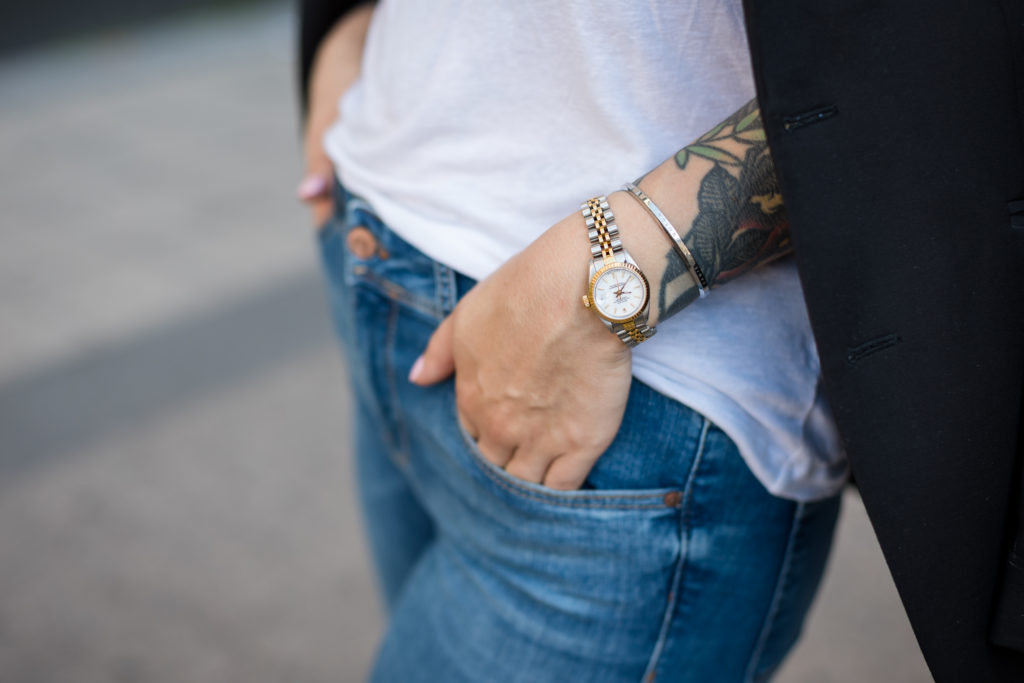
Emotional childhood is a state in which you are not taking responsibility for your emotions and you are giving credit for how you feel to the things, people, or world around you. But how do we know if we’re acting from emotional childhood or not? Let’s find out.
Before we start, I want to mention why I call it being “in emotional childhood” rather than being “an emotional child.” Emotional childhood and adulthood are not fixed states that we enter and then we’re done. They also don’t build on or succeed each other in any chronological order, like regular childhood and adulthood.
These are states that we are in based on what we are thinking. That means that you can switch from emotional childhood to adulthood and back simply by changing your thoughts.
Here are five signs that you are in emotional childhood in your relationship. At the bottom of this post, I’ll share a little more about why it matters.
1. You think something or someone “made you feel”
If you think something outside of you, a person, an event, or the weather, made you feel a certain emotion in your body, you are in emotional childhood. You are blaming (or giving credit for) how you feel to something outside of you.
The truth is that how you feel always comes from your conscious or subconscious thoughts.
2. You think the circumstance needs to change for you to feel better
If you are feeling a certain way and you think the only solution to this feeling is changing the circumstance in some way, you are in emotional childhood. Once again, you are not taking responsibility for generating your own emotions and you’re giving credit to the circumstance.
If you want to feel differently you need to think differently. The circumstance can change or remain the same, but that doesn’t control how you feel.
3. You want your partner to make you feel happy and loved
See the pattern? You think your feelings in the relationship come from your partner’s behaviors. So if you aren’t feeling happy or loved, you blame that on your partner rather than taking responsibility for that yourself. This is emotional childhood.
At the end of the day, no one can put feelings in your body for you. You need to take responsibility for generating them.
Love languages love to perpetuate the idea that we give and receive love, but the truth is that your love language is just how you are naturally programmed to interpret love based on your past, upbringing, and so on. No acts of service, words of affirmation, or gifts can put a feeling inside of you. Your thoughts about those things make you feel.
4. You are in a victim mentality
If you view yourself as a victim and make someone or something else out to be the perpetrator, you are giving all your power away to them and you live your life in emotional childhood.
Now, don’t confuse factually being a victim of a crime with a victim mentality. Two different things. When you are in a victim mentality you focus on how you are powerless and the other person, thing, your past, whatever you’re at the mercy of, is the thing that controls your life.
5. You don’t take responsibility for your own actions
I randomly saw a post on Instagram the other day where a person wrote that their “vacation made them gain 10 pounds.” This is the greatest example of emotional childhood and not taking responsibility for your own actions.
Your vacation didn’t make you gain 10 pounds. You choosing to eat a lot of food during your vacation made you gain 10 pounds. But taking ownership of that choice and that behavior is difficult, which is why most of us choose to stay in emotional childhood where we can blame everyone and everything else.
Why does it matter?
As you might be able to gather from the 5 signs, emotional childhood is an extremely disempowering way to live your life. Everyone and everything outside of you makes you feel, you need the world outside of you to change for you to feel better, and you are in no control over yourself and your thoughts, feelings, and actions. You are literally like a child who cannot take responsibility for themselves and rely on others to be okay in life.
When you practice living in emotional adulthood, you are taking full responsibility for how you think, feel, and behave. You’re not giving credit to or blaming others for your life experience. When you take full responsibility for yourself, you have the power to change things you don’t like, you have the power to feel better, and you have the power to do the things you want to do.
It sounds pretty awesome, but there’s a reason this isn’t our default.
It’s hard. It’s hard to own everything you think, feel, and do. It’s hard to acknowledge that it was a choice to quit doing that thing rather than blame the circumstances. It’s hard to admit that you are choosing to think thoughts that make you feel like ass. It’s hard to realize that if you want to feel a certain way in your life, you need to create that for yourself.
The empowered life is not an easy life when it comes to the mental effort that goes into it. But the disempowered, emotional childhood life is even worse because you are powerless and the world around you controls how you think, feel, and show up.
If you want to become an emotional adult and start taking full responsibility for yourself in your life and relationship, come work with me. Click the button below to read more and apply today.
If you want to learn more about emotional childhood, check out this podcast episode:
Comments +